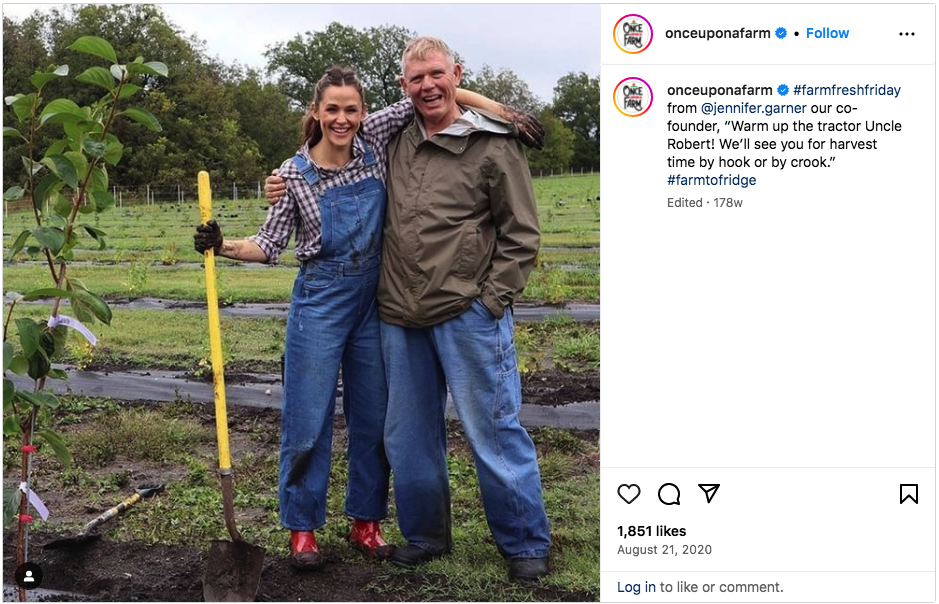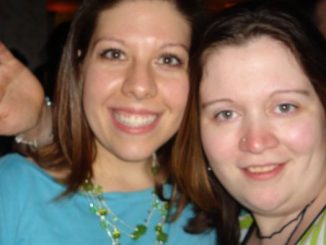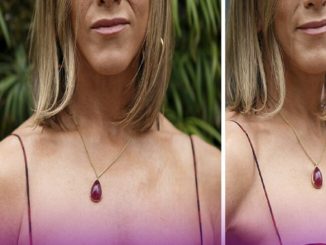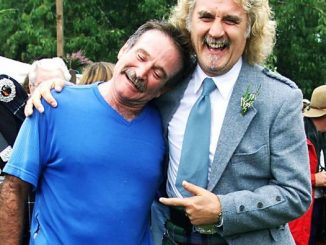Jennifer Garner is one of the most loved celebrities because of how relatable and approachable she seems. Her Instagram account is brimming with wholesome content about being a mother and navigating through life.
Patricia English Garner is Jennifer Garner’s mother. As a young girl, Patricia had a lot of sweet memories of growing up at a farm in Locust Grove, Oklahoma.
She even recalls how her parents bought the piece of land that has stayed in their family for generations. Her parents bought the piece of land in 1936, with a bonus her father had received from fighting in World War I.
69
The family had only $700 to purchase the land at the time. She recalls how her veteran father and mother did not even have a car at the time they bought the land. They had to hire someone to take them to the property.
“My parents didn’t even have a car, so when they heard about the land that was for sale, they hired someone to drive them to the property. The farm consisted of a two-room house and 20 acres–minus 1 acre at the heart of the property, which was a Native American cemetery,” Patricia said.
Mother told me the story of Dad leaning on his heels and negotiating all day over $20. When they finally agreed on a price, the deal was sealed, and the land was purchased. It’s been in our family ever since,” she ended.

Over the years as everyone grew up and moved away, the farm did not have one set of owners. It kept switching ownership from one family member to another as it was bought and sold repeatedly. Then finally, in 2017, Jennifer Garner decided to purchase the farm herself.
And she did not just purchase the farm for the sake of memory but she had the vision to turn it into a profitable business once again. To do so, she hired her uncle Robert and aunt Janet, who had previously owned the farm to help her with it.
It had been 40 years since the farm had been planted and tended to. In the past, her mother and her siblings had been avid farmers and sold pecans as well as grew lettuce, radishes, and potatoes.
And Jennifer wanted to bring that back. She established “Once Upon a Farm” with co-founders Ari Raz, John Foraker, and Cassandra Curtis. The idea was to grow organic fruits and vegetables that could be made into nutritious food for children.

She said she had been dreaming about the project for a while, “once upon a time… we dreamed of bringing baby food back to the roots with organic fruits and veggies harvested from local farmers, blended with love and served fresh from the fridge. We dreamed of feeling less stressed about mealtimes because we could feed our little ones foods that give them all the nutrients they need – and then some!”
Jennifer says giving busy moms access to nutritious food is important to her.
The company was started in 2018 and since then has been majorly successful. Their products are stocked at some of the biggest retailers in America and are also sold online on the company’s website.
If you see a purple butterfly sticker near a newborn, you need to know what it means

Only weeks after Millie Smith and Lewis Cann learned they were having twin baby girls, they learned that only one would survive.
On April 30, after 30 weeks of a high-risk pregnancy, Smith delivered identical twins, Callie and Skye, the latter who lived only three hours.
Later in neonatal intensive care unit (NICU), Callie slept without her sister in the incubator, with her loving and grieving parents watching over her. In the unit with other babies, an overwhelmed mom of healthy newborn twins innocently told Smith that she was “so lucky” to not have two babies.
Crushed by the words, the new mom couldn’t find the words to explain her loss. Then, she realized that Skye’s legacy was to help other families who lose a child, and it came in the form of a purple butterfly.
In November 2015 Millie Smith and partner Lewis Cann found out they were having their first Child. Smith, who has twins in the family, said she had a “gut feeling” about having a duo and 10 weeks later, doctors confirmed she was expecting identical twin girls.
Less than two weeks after the excitement of knowing they would double the children in their home, the British couple were devastated to learn that one of their babies had a fatal condition and wouldn’t survive after birth.
“During the scan, the doctor didn’t say anything. I was very excited and loved seeing the little babies, but she was silent. Both Lewis and I immediately knew there must be a problem,” Smith said.
Doctors shared the news that one of the babies had anencephaly, which according to the Centers for Disease Control and Prevention (CDC) affects about one in 4,600 babies across the U.S. It’s a serious birth defect where a baby is born without parts of the brain and skull, and “almost all babies born with anencephaly will die shortly after birth.”
Knowing that one baby would die soon after birth, and that there were risks involved for their other baby, the couple decided to move forward with the extremely high-risk pregnancy.
Over the next several months, Smith and Cann named their twins Skye and Callie. “We knew that Skye needed to have a name before she was born,” Smith said. “Knowing she would only survive for seconds or minutes, I wanted her to be named during that time.”
The meaning behind “Skye,” she explained “was somewhere we knew she would always be, that we could look up at the sky and remember our baby.”
When Smith went into labor after only 30 weeks on April 30, she needed an emergency C-section. To help navigate the loss, the couple had a “bereavement midwife” during the birth, and they were put I a special room the called the “Daisy Room,” where families can spend time with a baby before and after she/he passes.
“When the girls were born, they both cried. This was a huge moment, as we were told that Skye would not make a noise or move,” said Smith, who was thankful to have three hours with Skye before she died. “We were cuddling Skye when she passed away. This was the worst moment in our lives. I have never ever felt heartbreak like that before. But I am proud that she fought for so long to spend time with us.”
Born premature, Callie had to stay in NICU while she gained some strength and also in the unit were three other sets of twin.
“Most of the nurses were aware of what had happened, but as time passed, people stopped talking about Skye. After about four weeks, everyone acted as though nothing had happened, meaning the families around me had no idea about our situation,” Smith recalled.
One morning, a stressed mother whose twins were also in NICU, harmlessly said to Smith that she was “so lucky” to not have twins.
“None of the other parents knew what had happened or anything about Skye. The comment was completely innocent and more out of humor…They weren’t to know that I did at one point have two.” Smith continued, “But the comment nearly broke me. I ran out [of] the room in tears and they had no idea why. I didn’t have the heart to tell them what had happened. A simple sticker would have avoided that entire situation.”
It was in that moment Smith realized she had to create something that would speak for parents who had just lost a baby, ensuring the misunderstanding never happens again.
She designed a poster for the NICU explaining both hospital personnel and visitors that any incubator with a purple butterfly on it means that one or more babies, in a set of multiples were lost.
“I chose butterflies, as I felt it was fitting to remember the babies that flew away, the color purple because it is suitable for both boys or girls,” said Smith.
The purple butterfly concept–now under the Skye High Foundation–has spread to hospitals in several countries around the world.
Callie is now a lively, happy seven-year-old, and twin’s memory lives in purple butterfly cards along with other initiatives to help families with babies like Skye all over the world. The purple butterflies now come in numerous forms, like ornaments, cards, blankets, stuffed animals and more.
“Ultimately I will never be able to stop this from happening but the more support groups we can set up and put things in place like the stickers the better it will be. It’s the hardest thing anyone has to deal with,” Smith said.



Leave a Reply